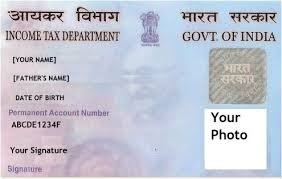As you would be aware, Permanent Account Number or PAN is a unique ten-digit alphanumeric number issued by the Income Tax Department.
It enables linking of all the necessary transactions of a particular assessee e.g. tax payments, TDS / TCS credits, returns of income, specified transactions and more.
You must have a PAN as it is mandatory for all transactions with the IT Dept.
Further, you have to quote your PAN for varied financial dealings, ranging from as common as opening a bank account or availing loans, to even buying / selling immovable property or foreign travel.
Besides, PAN card is commonly accepted as your photo identity proof.
Meanwhile, enumerated below are seven relatively little known facts about our PAN:
One. Just because you have a PAN does not make it compulsory for you to file your Income Tax Returns every year. (There are separate rules for filing income tax returns). So don't be afraid to apply for PAN if you don't have one. IT department will not needlessly harass you.
Two. You can have one and only one PAN. If two (or more) PANs are found in your name, you may be asked to pay a fine of Rs.10,000. So if unintentionally (or maybe even intentionally) you have got more than one PAN Card, do arrange to surrender the same to the Income Tax Dept. at the earliest.
It enables linking of all the necessary transactions of a particular assessee e.g. tax payments, TDS / TCS credits, returns of income, specified transactions and more.
You must have a PAN as it is mandatory for all transactions with the IT Dept.
Further, you have to quote your PAN for varied financial dealings, ranging from as common as opening a bank account or availing loans, to even buying / selling immovable property or foreign travel.
Besides, PAN card is commonly accepted as your photo identity proof.
Meanwhile, enumerated below are seven relatively little known facts about our PAN:
One. Just because you have a PAN does not make it compulsory for you to file your Income Tax Returns every year. (There are separate rules for filing income tax returns). So don't be afraid to apply for PAN if you don't have one. IT department will not needlessly harass you.
Two. You can have one and only one PAN. If two (or more) PANs are found in your name, you may be asked to pay a fine of Rs.10,000. So if unintentionally (or maybe even intentionally) you have got more than one PAN Card, do arrange to surrender the same to the Income Tax Dept. at the earliest.
 |
| Sample of a typical PAN Card |
Three. The PAN, once allotted to you, would be valid for lifetime. It will not change with change in your address or any other change in your details. However, you are supposed to keep the IT Dept. informed. Any change in your details such as address, contact no. etc. must be furnished, by filling the form for “Request For New PAN Card Or/ And Changes or Correction in PAN Data”.
Four. You must give your PAN details to your tax deductor e.g. your employer, bank, demat account, mutual fund etc. Normally tax deducted at source carries a concessional rate. And the balance tax payable, if any, is left to your assessment. However, if you don't submit your PAN, tax deductor will deduct TDS at a much higher rate of 20% or more.
Five. For PAN, married female individuals have to give their father's name and not their husband's name.
Six. If you do not comply with the provisions of PAN, you could be fined a sum of Rs.10,000. Key provisions in this regard include obtaining a PAN, compulsorily quoting it for certain specified transactions, furnishing PAN to your tax deductor, etc.
Seven. There is no Tatkal facility for obtaining your PAN. So don't wait till you need one.
Permanent Account Number is a vital and indispensable requirement. Hence, you all must endeavour to get one at the earliest.
By the way:
Do you how your unique Permanent Account Number is created?
If not, read How PAN gives you a unique identity.
[This post is an update of the earlier blog 'Permanent Account Number (PAN) details you may not know' posted on Dec 17, 2014]




